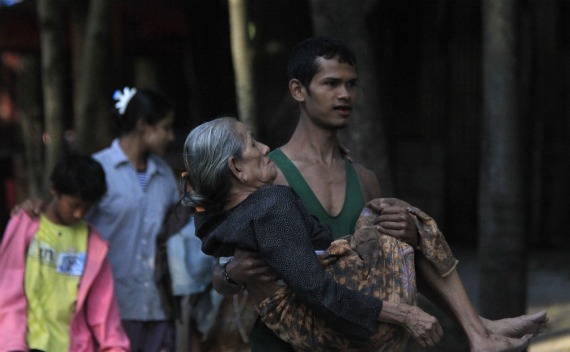Thailand to Myanmar Refugees: Drop Dead
More on:

According to reports by AFP and other news agencies, Thailand’s National Security Council head, Tawin Pleansri, told reporters after a meeting of the council that Thailand wants to close the refugee camps for over 100,000 Burmese refugees, who have fled the country over the past twenty years. Most of the Burmese refugees live in camps on the western Thailand-Burma border; their housing is basic, but it is better than living in eastern and northeastern Burma, where they are prey to regular campaigns of attacks and even mass rape by the Burmese military, and retribution attacks by armed ethnic militia groups. In one comprehensive report, a group focusing on Chin State in Burma documented the use of rape as a weapon of war by the Burmese military.
Thailand has never really wanted to house the Burmese refugees, but over successive administrations Bangkok has tolerated the refugee presence. Undocumented Burmese also frequently enter Thailand itself, providing a source of cheap and easily exploitable labor for many Thai companies. Now, however, Bangkok appears willing to use the fiction that Burma had a real election last fall to repatriate these refugees, most of whom will return against their will. Though the election last year may improve the quality of governance in Burma marginally, it was hardly a free or fair poll, or suggestive of the kind of dramatic change on human rights that would make it safe to return refugees.
There are other reasons for Thailand’s suddenly harder line. Leading Thai company Ital-Thai is in the process of making the largest-ever Thai investment in Myanmar, at over $13 billion. And overall, the government of PM Abhisit has tried to foster rapprochment with its neighbor. Too bad that over 100,000 refugees are going to be treated as a pawn in this relationship.
More on:
 Online Store
Online Store
